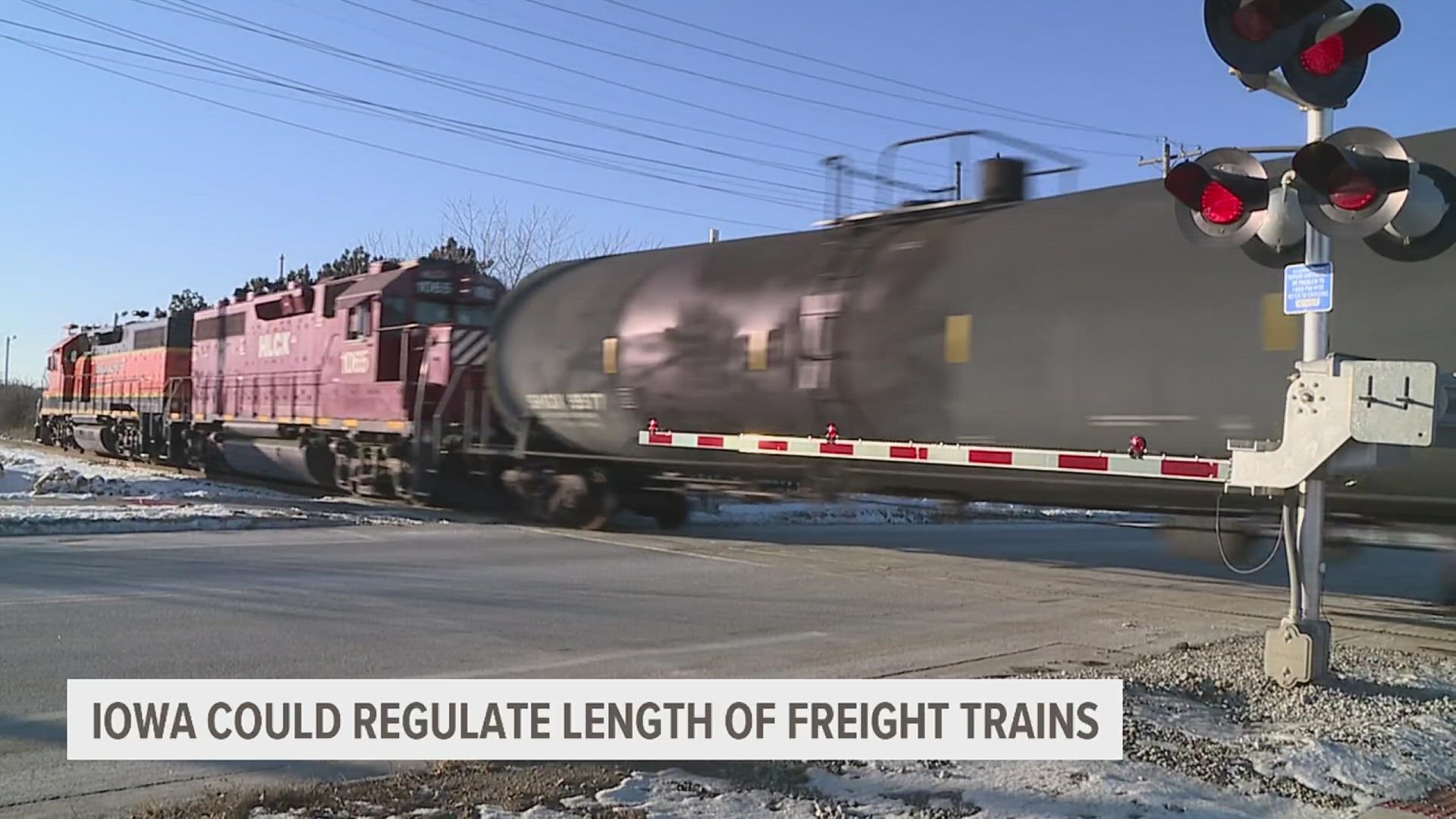DES MOINES, Iowa — A bill is making its way through the Iowa legislature that would limit the length of freight trains traveling through the state.
The House subcommittee voted unanimously last week to advance the bill to the full House Transportation Committee. It seeks to limit the length of freight trains to 8,500 feet, or roughly 1.6 miles. Currently, there is no limit to a train's length.
Two unions representing freight train workers, SMART-TD and BLE-T, have come out in support of the bill.
"Bigger trains have bigger problems," said Chris Smith, the state director for SMART-TD. "Our main concern with that is public safety: blocked crossings, delays for fire, EMS, police departments, etc."
There were 1,468 blocked crossings reported in Iowa in 2022, according to Smith. Of those, 502 were reported blocked for at least an hour, 13 were blocked for at least 12 hours and 16 were reported blocked for more than a day.
A U.S. Government Accountability Office report from 2019 found that freight trains are getting longer, saying in some cases, stretching to nearly three miles. The report looked at data from two Class I rail carriers that showed that their average train length increased by about 25% since 2008. The average length of their trains in 2017 was between 1.2 and 1.4 miles.
Blocked crossings and long train lengths have been an issue repeatedly brought up in towns along the railroad that would be impacted by the merger between Canadian Pacific and Kansas City Southern.
Smith added that Iowa's railroad infrastructure can't support longer trains.
"Railroads have been around for 150 plus years, and they never dreamed of running trains that were three, three and a half, four miles long," he said. "Many towns were designed around railroads and have grown, never with the understanding of this big infrastructure needs. So towns that might have seen inconveniences before are now seeing three, four, five, six, seven-hour delays waiting on these monster manifests to do their work."
Representatives for three of the Class I railroads have come out against the bill: CN Rail, BNSF and Union Pacific. Several other smaller railroads have also expressed dissent, including the Iowa Interstate Railroad.
They've argued that shorter trains would increase the number of trains running through communities. Smith argues that's not a bad thing.
"If you have more trains running that fit the infrastructure, there's fewer overall delays," he said. "They start better, they stop better. They run track speed better. Union Pacific, I know, they say their average velocity is 19 miles an hour. If you have to wait for a three-and-a-half-mile-long train to go 19 miles an hour in front of you, you're talking 30-plus minutes of delay at a crossing. If you have an 8,500-foot train that's running track speed at 40 to 50 miles an hour, you're talking a five-minute delay. I think most people can reasonably plan a five-minute delay into their travel portion."
Railroads could be fined anywhere from $500-$5,000 per violation if a train is longer than 8,500 feet.
A previous, identical version of this bill was brought up last year and cleared initial review but died in committee.
More From News 8
Watch more news, weather and sports on News 8's YouTube channel

